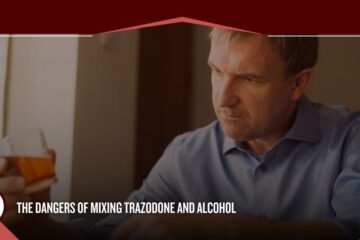Alcohol is a widely accepted and deeply ingrained part of our social fabric. Its ubiquitous presence in our daily lives often blurs the line between casual consumption and dependency. Nevertheless, alcohol addiction is alarmingly prevalent and deserves our utmost attention. Precisely because of its social acceptance, it’s crucial to know how to recognize alcohol addiction signs. At Alamo Behavioral Health, we understand the complexities of this affliction well. With our extensive experience in addiction treatment, we are equipped to guide individuals toward a path of recovery through the best residential rehab Texas has to offer. Our holistic approach combines evidence-based therapies, compassionate support, and a nurturing environment to address the underlying causes of alcohol addiction. Join us as we shed light on the often obscured reality of alcohol addiction and explore effective strategies to recognize the signs.
Signs of Alcohol Abuse or Addiction
As with all addictions, alcohol addiction does come with some early warning signs you should pay attention to. For your reading convenience, we’ll split them into three main types:
- physical
- behavioral
- emotional

Physical Alcohol Addiction Signs
First, physical signs may be among the easier ones to recognize. Physical signs of alcohol abuse or addiction can include:
- Changes in appearance and hygiene: Individuals battling alcohol addiction may experience a decline in personal grooming, neglecting their physical appearance and hygiene routines. Disheveled hair, unkempt clothing, and a general deterioration in overall cleanliness may become apparent.
- Frequent hangovers and withdrawal symptoms: Regular bouts of hangovers, marked by headaches, nausea, fatigue, and irritability, can indicate excessive alcohol consumption. Additionally, experiencing withdrawal symptoms, such as sweating, anxiety, and agitation when attempting to stop drinking, may suggest a physical dependence on alcohol.
- Tremors and shaky hands: Tremors, particularly in the hands, are a visible manifestation of alcohol addiction. Uncontrollable shaking can occur during periods of abstinence or as a result of withdrawal, reflecting the body’s reliance on alcohol.
While such signs may differ among individuals, they can often serve as a reliable way to recognize an alcohol addiction problem.
Behavioral Alcohol Addiction Signs
Those who abuse alcohol may see their behavior impacted. Behavioral signs of alcohol abuse or addiction can include:
- Increasing tolerance: Individuals may develop an escalating tolerance to alcohol, requiring larger quantities to achieve the desired effects. This pattern often leads to more frequent and excessive consumption.
- Neglecting responsibilities and hobbies: Alcohol addiction can consume a person’s life, causing them to neglect important responsibilities and hobbies that were once meaningful. This includes neglecting work or school obligations, social commitments, and personal interests.
- Hiding alcohol consumption and secretive behavior: People struggling with alcohol addiction often go to great lengths to conceal their drinking. They may hide bottles, sneak drinks, or engage in secretive behaviors to avoid scrutiny.
Of course, some such signs may be harder to recognize than others. If they are, however, they’re typically very reliable indicators.
Emotional Alcohol Addiction Signs
Emotional signs can provide crucial insights into the profound impact of alcohol addiction on an individual’s mental well-being. Here are key indicators to consider:
- Mood swings and irritability: Alcohol addiction can lead to frequent mood swings, marked by sudden shifts in emotions and increased irritability. Individuals may exhibit unpredictable behavior and become easily agitated or angered.
- Depression and anxiety: Alcohol dependency often coexists with mental health disorders such as depression and anxiety. Individuals may experience deep sadness, persistent feelings of hopelessness, or heightened anxiety as a result of their addiction.
- Relationship difficulties: Alcohol addiction can strain relationships and cause interpersonal conflicts. Individuals may struggle to maintain healthy connections with loved ones, experiencing strained communication, trust issues, and a sense of isolation.
Such signs will often overlap with behavioral symptoms as well and can also serve as reliable ways to recognize an alcohol addiction problem.

Symptoms of Alcohol Addiction
With the above in mind, an established addiction to alcohol may come with more specific and more severe symptoms. These typically come in two types:
- physical
- psychological
Physical symptoms can include:
- Nausea, vomiting, and loss of appetite: Excessive alcohol consumption can irritate the stomach lining, leading to persistent nausea, frequent episodes of vomiting, and a diminished appetite.
- Insomnia and disrupted sleep patterns: Alcohol disrupts the natural sleep cycle, resulting in insomnia and fragmented, poor-quality sleep. Individuals may struggle to fall asleep, experience restless nights, or wake up feeling tired and unrested.
- Liver damage and related health issues: Prolonged alcohol abuse can cause severe damage to the liver, leading to conditions such as alcoholic hepatitis, cirrhosis, and liver failure. Symptoms may include jaundice, abdominal pain, fluid retention, and increased susceptibility to infections.
Psychological symptoms can include:
- Cravings and a strong desire to drink: Individuals with alcohol addiction often experience intense cravings and a powerful urge to consume alcohol. Managing these cravings is the key focus of alcohol detox in San Antonio, as most individuals cannot do so on their own.
- Inability to control or stop drinking: One of the defining characteristics of alcohol addiction is the inability to control or stop drinking despite negative consequences. Individuals may make repeated unsuccessful attempts to cut back or quit altogether.
- Blackouts and memory lapses: Alcohol impairs cognitive function and memory formation, leading to frequent blackouts and memory lapses. Individuals may have difficulty recalling events or periods of time during which they were intoxicated.
As you can see, such symptoms tend to be more profound, impactful, and visible.
Types of Drinkers
That said, before attempting to recognize an alcohol addiction problem, it is essential to recognize that different types of drinkers exhibit distinct behaviors. Each category of drinker presents unique characteristics and patterns that contribute to the complexity of assessing and addressing addiction.
Here are four main types of drinkers:
- Social drinkers
- Binge drinkers
- Problem drinkers
- Chronic alcoholics
Social drinker
Social drinkers consume alcohol in moderation and primarily in social settings. They have the ability to control their drinking habits, enjoying alcohol as part of socializing or special occasions without experiencing negative consequences or dependency.
Binge drinker
Binge drinkers engage in episodes of excessive alcohol consumption within a short period. This behavior often involves consuming large quantities of alcohol with the intention of getting intoxicated. Binge drinking is characterized by a lack of control and can lead to acute health risks and impairment.
Problem drinker
Problem drinkers display patterns of excessive alcohol consumption that negatively impact their lives. They may not meet the clinical criteria for alcoholism but experience difficulties in various areas such as relationships, work, or physical and mental health.
Problem drinking can escalate if left unaddressed, especially if underlying mental health disorders also exist. Dual diagnosis treatment centers San Antonio TX offers tend to be necessary in treating such cases, as both components of addiction require simultaneous treatment.
Chronic alcoholic
Chronic alcoholics have a severe and persistent dependence on alcohol. They experience physical and psychological cravings for alcohol, struggle to control or stop their drinking, and may face significant consequences in multiple areas of life. Chronic alcoholism often requires intensive professional intervention and long-term treatment.

Can You Drink Every Day and Not Be an Alcoholic?
In addition to drinker types, to properly recognize an alcohol addiction problem, it’s equally important to understand the relationship between daily drinking and alcoholism.
Initially, it is crucial to differentiate between alcohol abuse, dependence, and addiction. Alcohol abuse refers to excessive and problematic drinking that leads to negative consequences. Dependence involves physical and psychological reliance on alcohol, leading to withdrawal symptoms when consumption is reduced or stopped. Addiction encompasses a compulsive and uncontrollable pattern of alcohol use despite adverse effects on various aspects of life.
However, the concept of functional alcoholism challenges the traditional understanding of alcohol addiction. Functional alcoholism refers to individuals who maintain a high-functioning lifestyle while consuming alcohol regularly. They may drink every day but seemingly manage their responsibilities and relationships effectively. Some argue that if an individual can consume alcohol habitually in moderation without experiencing negative consequences or exhibiting signs of dependence or addiction, it may be considered normal alcohol use.
Nevertheless, it is crucial to note that regular alcohol consumption carries potential risks, even if it does not meet the criteria for alcoholism. Alcohol affects individuals differently, and the line between habitual drinking and problematic use can be blurred. Ultimately, the distinction between normal alcohol use and alcoholism lies in the presence of negative consequences and the individual’s ability to control their drinking.
Treatment of Alcohol Abuse
Finally, once you do recognize an alcohol addiction problem, it’s vital to act swiftly. The more one leaves any addiction untreated, the harder it becomes to treat down the line.
That said, alcohol abuse treatment encompasses a range of interventions aimed at helping individuals overcome addiction and regain control of their lives. However, we understand the process may seem unclear, so let us explore the key steps to offer you some peace of mind.

Detox
The process often begins with detoxification, which focuses on managing withdrawal symptoms in a safe and supervised environment. Medically supervised detox ensures the individual’s physical well-being while minimizing the discomfort associated with alcohol withdrawal. Medically assisted detox in San Antonio often includes monitored pharmacotherapy to make the process as comfortable and effective as possible.
Notably, even beyond detox, medications can play a crucial role in alcohol addiction treatment. Approved medications, such as naltrexone, disulfiram, and acamprosate, may be prescribed to help individuals reduce cravings, deter drinking, and manage withdrawal symptoms.
Inpatient and Outpatient Programs
Following detox, various rehabilitation options are available. Inpatient treatment programs offer intensive, round-the-clock care in a residential setting. These programs provide a structured environment where individuals receive therapy, counseling, and support to address the underlying causes of addiction, such as past traumatic experiences. Alternatively, outpatient counseling and support groups offer flexibility for those who do not require 24-hour supervision. Outpatient programs typically involve regular counseling sessions, group therapy, and access to support networks that aid in the recovery process.
Notably, both types of programs are typically covered by United Healthcare rehab coverage and other healthcare insurance policies. This bears noting, as the fear of lack of coverage often discourages individuals from seeking the help they need.
Therapies and Aftercare
Finally, therapies and counseling techniques are essential components of alcohol abuse treatment and span across multiple programs. Once the patient completes inpatient or outpatient programs, aftercare programs come as the final step that incorporates these same therapies to ensure a proper recovery.
Cognitive-behavioral therapy (CBT) helps individuals identify and modify harmful thought patterns and behaviors associated with alcohol use. Motivational interviewing enhances motivation and commitment to change, empowering individuals to make healthier choices. Family and group therapy provide a supportive environment for addressing interpersonal dynamics, repairing relationships, and building a strong support system.
This multifaceted approach addresses the physical, psychological, and social aspects of addiction, providing individuals with the tools and support necessary to achieve lasting sobriety and a renewed sense of well-being. Aftercare programs leverage these practices and encourage socialization, allowing recovered individuals to prevent relapse and rebuild their lives.

Recognize Alcohol Addiction Signs and Get the Right Help
It’s far from easy to recognize alcohol addiction signs, as alcohol’s widespread acceptance and prevalence make it harder to identify. However, it is crucial to acknowledge that alcohol addiction is a serious issue that can devastate lives and relationships. Identifying the signs and seeking appropriate treatment is paramount in supporting individuals on their path to recovery.
At Alamo Behavioral Health, we understand the intricacies of alcohol addiction and offer comprehensive treatment options to address the physical, psychological, and emotional aspects of this condition. Our dedicated team of professionals is equipped to guide individuals through detoxification, rehabilitation, therapies, and ongoing support.
If you or your loved ones need our help, please feel free to contact us today. We will be more than happy to assist you in any way possible and help guide you through the journey to recovery.




